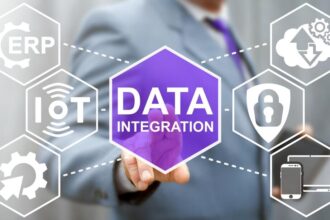Background and Definitions

Background and Definitions

Cloud technologies are currently being hyped and advocated by all software vendors. Almost every ERP, virtualization, infrastructure, and application vendor says that their software takes advantage of the cloud. The cloud has become synonymous with successful, modern, well developed software. As companies promote the cloud, the differences between a SaaS offering, web-based software, and the cloud have been blurred. In this article we will try to clarify the benefits of each.
Web-based technologies have been in the press for many years so they are not as “in vogue” as cloud technologies. Key differences between web and cloud are (a) web-based technology relates to software while cloud-based technology has been applied to a wider range of computing resources such as hardware, storage, and software and (b) cloud technology can be employed without the use of web-based software.
The definition of SaaS is the widely debated, and in an earlier article we pointed out confusion between SaaS and hosting. Both cloud technology and web-based software make SaaS easy and effective to deliver – but it is possible to have SaaS without cloud technology.
This article will cover some how web-based and cloud-based can benefit ERP users. In many cases the benefits of web-based software is more important than software that is deployed on the cloud.
Benefits
Cloud Benefits
The benefits of using an external cloud provider are similar to the benefits you get from buying power from your power company.
- Instead of building a power plant in your office, you can get started right away by hooking into the power grid. If you grow rapidly or plug in more appliances, you can easily buy more capacity from the power company instead of having to upgrade your plant and equipment.
- When you first buy power you only invest in building the connection and the appliances, you don’t have to spend massive amounts of capital to build a plant.
- When something goes wrong, you call the power company get them to fix the problem. You don’t need to hire full time employees with expertise in power distribution and circuit design.
- You benefit from economies of scale associated with providing the service. This is why you don’t see many businesses with generators running behind their building. Of course, there are exceptions where a large corporation in a remote location may benefit by generating their own power.
By replacing the words power company with cloud provider and appliance to software application you will see the benefits of deploying your ERP solution on a externally provided cloud.
To summarize: faster to build, lower hardware costs, rapid scaling, pay only for what you use.
Web Application Benefits
The benefits of using web-technologies are similar to the benefits you get from making purchases using a charge card such as Visa instead of setting up an account with each of your vendors.
- Instead of multiple accounts and multiple pieces of plastic, a universally accepted charge card provides you with access to your account/line-of-credit no matter where you are, just like a web browser with your account credentials provides access to your software applications/data from anywhere.
- Once you setup your charge card with your bank, you to not have to maintain any information with regard to each vendor, just like after you setup your computer, there is nothing more to maintain (with the exception of some occasional browser updates).
- Your charge card provides instant access to a centrally managed account with your information and data no matter where you are.
- Your charge card can be used from any city or location and provides access to your centrally located account information.
To summarize: no client software install, no client software maintenance, real-time data, access from anywhere, cross platform compatibility
SaaS Benefits
The benefits of using SaaS are similar to the benefits you get from renting a house instead of buying it.
- It’s faster and easier to rent. There is no title search, home inspection, down payments, and complexities associated with purchasing a house.
- You don’t need a large, up-front investment when you rent a home instead of purchasing one. Of course, renting isn’t for everybody and may end up being more expensive in the long run.
- When something breaks a renter does not have to arrange to fix the problem or pay to fix it. Usually the renter calls the owner and has them perform the necessary maintenance work. As a renter, you do have responsibility for minor things such as cleaning, taking out the trash, etc.
A renter is similar to a user of SaaS software while a home owner is similar to a company that buys a software license. The reasons for home ownership are similar to software ownership. First, you can make changes/customizations to the software that are specific to your business. A renter can configure some things (change paint color, etc.), but an owner can take down a wall or add a bathroom. Second, the cost of owning software may be less in the long term if a business is willing to update the software and manage the operating environment. Finally, some businesses, just like some home owners, like the control that ownership provides against increasing rents and long term reliance on external vendors.
To summarize: rapid installation, lower up-front fees, fewer maintenance hassles.
Putting it all together: web, SaaS, and cloud
Web-based applications can be run as SaaS in the cloud to gain the benefits of all three models with one deployment. The table below illustrates several advantages of an ERP system deployed in this manner while specifying the technology that is the main contributor to the desired benefit.
| Benefit | Importance to ERP* | Web-Based | SaaS | Cloud |
| Access from anywhere | High | X | – | – |
| Cross platform compatibility | Med | X | – | – |
| Easy, rapid installation | Low | X | X | – |
| Reduced maintenance | Med | X | X | ** |
| Lower hardware costs | Low | – | X | X |
| Scale up and down | Med | – | – | X |
| Pay for what you use | Low | – | – | X |
* Importance to ERP. This column describes the relative benefit to a mid-sized ERP company. The ability to access your data and applications from anywhere is quite important while the hardware savings associated with the cloud might be insignificant in an average ERP deployment. For example, if an ERP system costs $100,000 (software, configuration, customization) and the hardware it runs on costs $8,000, then saving 20% on the $8,000 will not be a critical component of the overall solution. Scaling up and down and paying for only what you use are also benefits of Cloud, but ERP deployments have fairly predictable usage patterns for most companies (although I can think of many exceptions where this would be critical). Some more discussion on these items is found in the post ERP for Distributors: SaaS versus Traditional.
** Many cloud programs are offered with SaaS components. For example, the Windows Azure program includes an operating system and OS updates. In this case the “cloud” includes the platform and would also include the benefits of SaaS (as it relates to the operating system). The combinations of solutions and fluid nature of the cloud definition make it nearly impossible to represent benefits in a simple matrix as we have tried to do here.
Is SaaS Required?
A final point worth noting is the fact that SaaS should be an optional component of your ERP software, not a required one. Some businesses may decide to forgo the SaaS benefits in order to gain a more flexible system and long term cost benefits associated with purchasing a cloud ERP system that is customized and integrated with on-premise applications.
Conclusion
Software applications that are web-based and deployed on the cloud maximize efficiencies and minimize costs associated with building and maintaining ERP applications. The relative importance of the benefits associated with a web-based solution for a complex application such as ERP is much higher than the financial benefits realized by deploying on the cloud. The introduction of SaaS provides both benefits and encumbrances, so we recommend selecting the vendor which offers both and allows you to switch deployments according to your business needs.








